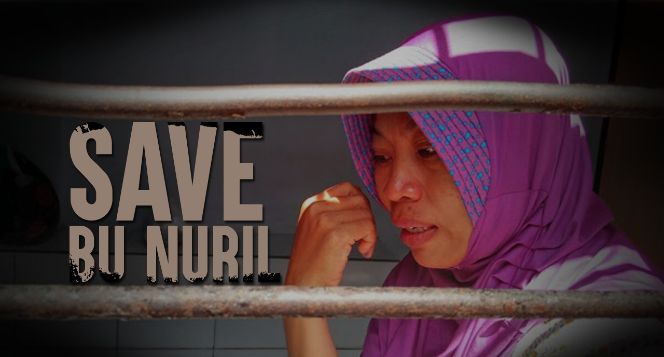Baiq Nuril, a woman who was sentenced to six months in prison for defamation for recording her boss’ sexual harassment on tape, is set to see her highly-criticized conviction nullified after the amnesty granted to her by President Joko Widodo was approved by parliament yesterday and should be finalized today.
After President Jokowi granted amnesty to Baiq earlier this month, the only thing that was needed for it to take legal effect was the approval of the House of Representatives (DPR). Parliament’s Commission III, which oversees national matters related to justice and human rights, has since held two sessions discussing Baiq’s amnesty, the latter of which, held yesterday, saw them finally officially approve it.
“DPR Commission III has convened [to discuss the amnesty] and, thank God, we have decided in favor of [Baiq] Nuril,” Commission III Chairman Aziz Syamsuddin told reporters yesterday, as quoted by Detik.
The commission’s decision is set to be brought to a DPR plenary session today, where it will be finalized.
Baiq could not contain her happiness after the commission’s approval of her amnesty.
“I can only say thank you, thank you, thank you,” she said while in tears.
Human rights analysts in Indonesia have praised the presidential amnesty for Baiq, saying that it could set a precedent for victims of sexual harassment in the country to speak out against their tormentors. However, many also warn that as long as existing defamation laws continue to serve those in power over real victims, there may still be more cases like Baiq’s in the future.
The Injustice
Baiq’s case first began while she was working as a teacher at a high school in Mataram on the island of Lombok. She says that she was verbally sexually harassed with indecent conversation by her school’s principal several times before she decided to record him doing so during a phone conversation back in 2012.
When the recording was made public (the audio was uploaded not by Baiq but one of her colleagues instead), the principal lost his position. But in retaliation, he filed a criminal report over the recording for violating Indonesia’s Law on Electronic Transactions and Information (UU ITE), which criminalizes any electronic message or communication that could be considered slanderous or immoral (and which has been criticized innumerable times as a tool to promote censorship, limit free speech and protect those in power by criminalizing those who speak out against them).
Although found not guilty in the district court, the Supreme Court overturned that decision, ruling that Baiq was guilty of “distributing and/or transmitting or making accessible electronic information and/or electronic documents that have contents that violate morality.”
When the Supreme Court finally published the official court document pertaining to her case in December, it became apparent that the court ignored the sexual harassment aspect of her case, focusing instead on the principal’s honor.
“Because of the actions of the defendant, the career of the plaintiff, Haji Muslim, as a principal came to an end, his extended family was shamed and his honor was violated,” reads a passage in the much criticized court decision.
For that, Baiq was sentenced to six months in jail as well as a fine of IDR500 million (US$33,500). A crowdfunding campaign to pay her fine has raised IDR375 million so far.
In June, the Supreme Court rejected Baiq’s judicial review, saying that the review, which was based on a mistake made by the MA judges adjudicating her appeal in 2018, was groundless.





Reader Interactions